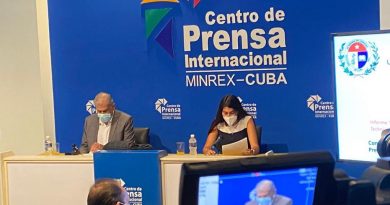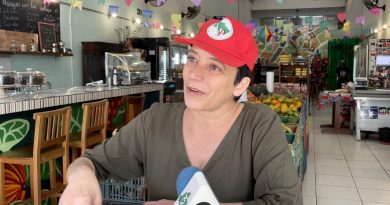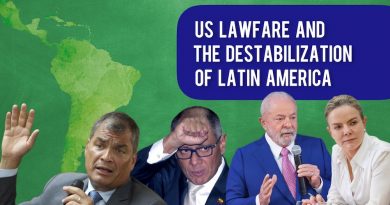Bolivia’s Goni ordered to pay compensation to victims
Bolivian ex-president Gonzalo Sánchez de Lozada, known as ‘Goni’ has been convicted in the United States and will have to compensate victims of the October 2003 massacre.
“No one is untouchable in this life, no matter how much money they have,” is how one of the nine plaintiffs summarized the meaning of the conviction in the of former president Sánchez de Lozada for the extrajudicial executions in the massacre of 2003, which forced him to negotiate compensation for the victims.
Lawyer Thomas Becker and the victims of the October massacre reported at a press conference the compensation agreement reached in the civil trial, an unprecedented event during which the former president and former minister Carlos Sánchez Berzaín, also known as Zorro Berzaín, admitted responsibility for the October 2003 deaths.
Nine families representing the dozens of victims raised and carried out the civil trial, which began on March 5, 2018 before Judge James Cohn of the Federal Court in Fort Lauderdale, Florida.
The legal option was raised and promoted due to the lack of results of the petition letters sent by Bolivia to the United States, for the extradition of the main defendants in the liability trial opened in the judicial courts.
Sánchez de Lozada and Sánchez Berzaín took refuge in the U.S. when they left Bolivia in 2003. The former president resigned due to the failure to contain a social revolt which, in a matter of days, claimed more than 60 lives and hundreds of injured by gunshot wounds.
“After fighting for 20 years we have achieved it, no one is untouchable in this life, no matter how much money they have, whatever. We have done it, a poor person from the countryside, from El Alto. The people of El Alto have done this process alone, no one has helped us,” said Teófilo Baltazar, one of the victims and plaintiff.
The amount of compensation and the terms of the agreement reached this Thursday are confidential. However, Judge Cohn in his initial ruling and ratified in 2021 determined that the defendants must pay the victims $10 million.
“There is a resolution that says it is time to resolve the legal dispute, what does it mean? There are no more appeals, Goni couldn’t appeal, they can’t go to the Supreme Court, there are no more appeals. If you can’t appeal what’s left, the only thing left is the verdict that says that Goni and Sánchez Berzaín are responsible for extrajudicial executions,” explained Becker, the victims’ lawyer.
Moved to tears, Attorney Thomas Becker stated that what happened is an unprecedented event. “Now the message is sent that the door of our house (the United States) is closed to people who kill their people.”
The nine plaintiffs are relatives of the victims. These are Eloy Rojas Mamani, Etelvina Ramos Mamani, Sonia Espejo Villalobos, Hernán Apaza Cutipa, Teófilo Baltazar Cerro, Juana Valencia de Carvajal, Hermógenes Bernabé Callizaya, Gonzalo Mamani Aguilar and Felicidad Rosa Huanca Quispe.
Sánchez de Lozada and Sánchez Berzaín were prosecuted for extrajudicial executions and manslaughter in the military repression of October 2003, according to the lawsuit Mamani vs. Sánchez de Lozada and Sánchez Berzaín.
The 2003 conflicts were concentrated in El Alto and La Paz, where tanks and armed soldiers intervened and did not hesitate to shoot civilians. The conflict was activated by the government’s attempt to sell gas through Chilean ports and escalated to demand the nationalization of natural gas and the resignation of the government, the second of Sánchez de Lozada, a wealthy man who lived much of his life in the United States, hence his particular way of talking.
Felipe Quispe ‘El Mallku’, the leader of the COR-El Alto Roberto de la Cruz, the neighborhood leader Abel Mamani, among others, were actors in the popular mobilization, which was preceded by the police mutiny of February 2003 due to a salary tax for the poorest that Sánchez de Lozada ordered and that was rejected by the population.
In Bolivia, a trial for the October massacre had been activated, but without being able to put Sánchez de Lozada on the stand.
“I hope that (trial in Bolivia) is done, but I am happy with what has been achieved,” said Baltazar, one of the plaintiffs.
In contrast to the compensation agreement, the defendants are exonerated from any future action by the plaintiffs in relation to the events of October 2003. Furthermore, it was established that “the decision to conciliate does not mean that the Defendants admit responsibility for the events in question.



